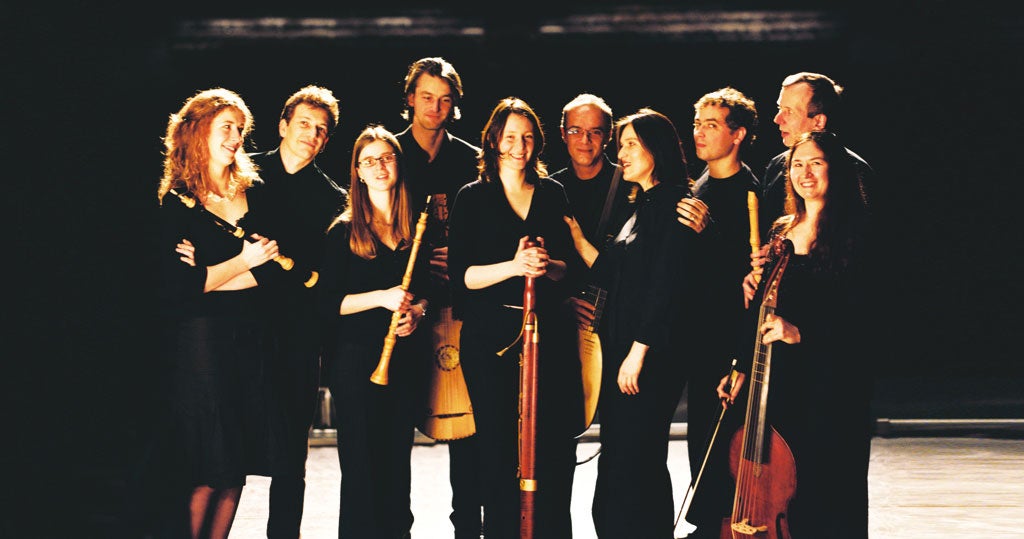Le Poème Harmonique, ****/ Classical Opera, Piau, ***

I had not heard of Le Poème Harmonique, nor had I heard of the composers Etienne Moulinié or Charles Tessier (the Oxford Dictionary of Music hadn’t either), so this French ensemble’s recital of their music was an ear-opener.
Moulinié and Tessier led rackety, risky lives in the turbulent times of Louis XIII, and wrote airs de cour which were France’s answer to the Elizabethan lute song. Moulinié also composed instrumental fantaisies, and the one we heard here had Purcellian plangency.
The songs were fascinating, reaching extremes of ribaldry - ‘Too long have I been a virgin’; ‘All night long/I can bang like a ram’ - and at times shrouding themselves in mystery. I am still puzzling over the meaning of Tessier’s ‘No ay en el tierra’, with its ominous suggestion that the figure gracefully incarnated by the singer is an exterminating angel. ‘Whatever I look on, I destroy...’
The singing itself was by turns gutsy and haunting, as was the playing by this ensemble, whose early-Baroque instruments conjured a lovely range of textures. One of the Moulinié rarities they played was a series of pieces for a ballet whose original production had seen a procession of cooks, slaves, chambermaids, minstrels, monkeys, and women played by courtiers in drag, all of whom had their own evocative number; yet in serious mode Moulinié was a polyphonic master to rival Monteverdi. If this ensemble has a USP, it’s undoubtedly in soprano Claire Lefilliatre, whose timbre cuts powerfully but sweetly through everything.
The following evening saw the hall filled to bursting for a French soprano of a very different sort. Sandrine Piau is a famous canceller, but her devotees will travel hundreds of miles on the off-chance of catching a performance; the fact that others would travel just as far to avoid one is a reflection of her singing’s divisive effect.
And this recital of Mozart trouvailles, with early symphonies alternating with arias, made both responses understandable. She has an extraordinary timbre, but so mannered a style that she can destroy the line of the music, and she doesn’t sing words. Evidently a nervy creature, she relaxed as the evening progressed, and her second encore, an exquisite Handel lament, allowed her to find her true voice and incidentally showed off the wonderful transparency of the Orchestra of Classical Opera’s sound.
Join our commenting forum
Join thought-provoking conversations, follow other Independent readers and see their replies
Comments
Bookmark popover
Removed from bookmarks